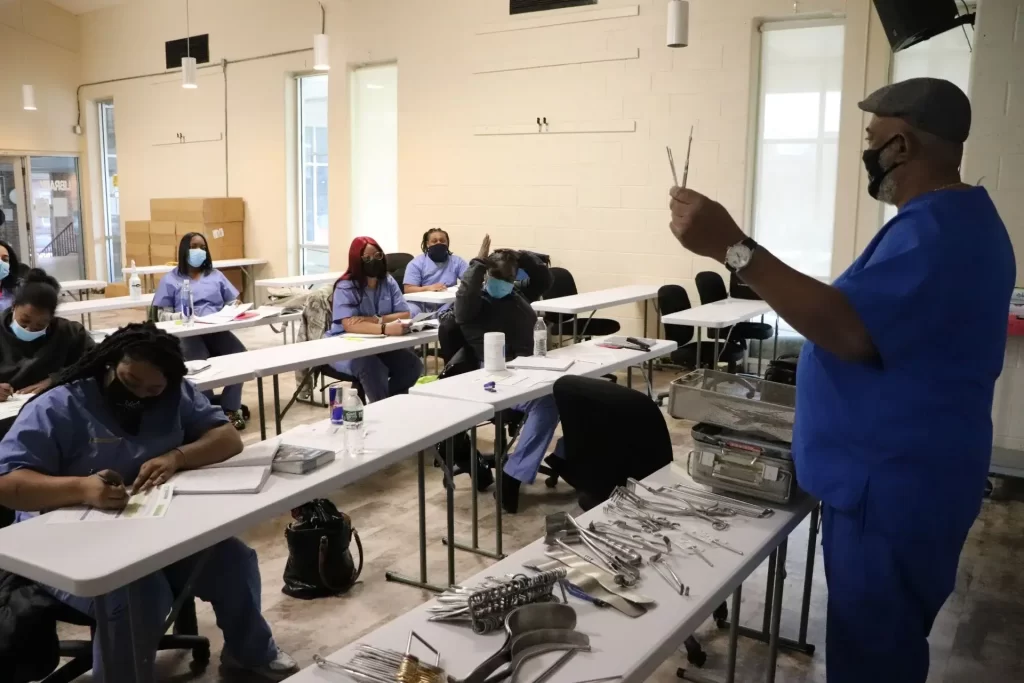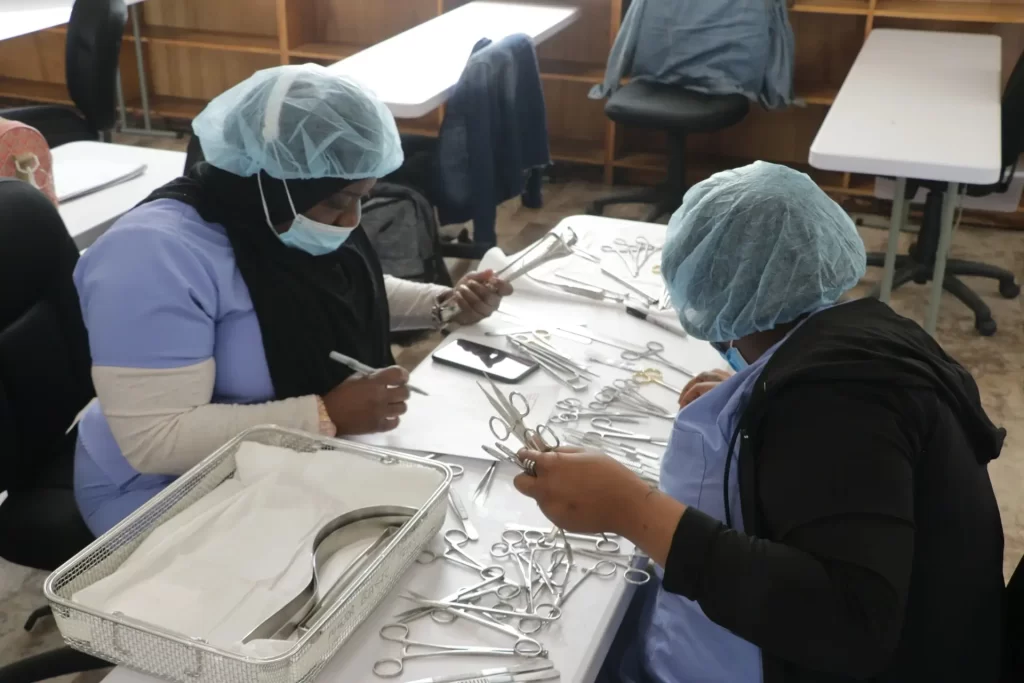If you are curious about functioning in a hospital’s surgical unit, you may contemplate earning a sterile processing technician certificate. After gaining a sterile processing technician certificate, they generally focus on retaining the hygiene of medical appliances.
This can assure it’s secure for patient applications. In addition, comprehending the education, training, and licensing provisions technicians fulfill can enable you to prepare for a profitable career. This article defines sterile processing technicians, evaluates what they do, and elucidates how to become a sterile processing technician.
A sterile processing technician is a medical specialist who disinfects equipment and appliances in a surgical atmosphere. They equip surgical units for planned and emergency surgeries. They use particular sterilization tools, such as autoclaves, to sterilize reusable surgical equipment.
Sterile processing technicians also evaluate a hospital’s hygiene reserves and trace the location of sterilization devices. In addition, they’re accountable for retaining their professional device and planning repairs as needed.
Here is a list of steps you can pursue to come to be a sterile processing technician:
Employers generally expect a high school diploma or equivalent to a sterile processing technician. To prepare for your dream career, you can contemplate taking biology, chemistry, and medicine lessons. While following your high school education, you may deem studying sterile processing classes near you. Relying on the registration process for your target program, you may be eligible to pertain before graduating from high school.
You can discover sterile technician programs at training schools or community colleges. Depending on the category of program you select, sterile processing technician education can vary from ten weeks to two years.
To assess which program is right for you, contemplate getting the institution and inquiring if you can attend a class. You may also consult professors and students to listen to their viewpoints on the program.
Before enrolling in a sterile processing program, you can collect a list of problems and plan an appointment with an advisor. They can reply to questions about the field, deliver details about courses and share planning information. Advisors can also assist prospective professionals in conserving financial assistance. This may help you follow your dream career while accomplishing your personal financial goals.

To enroll in your target program, you may fulfill particular requirements to become capable of approval. For example, some programs expect candidates to finalize an entrance exam to evaluate their basic problem-solving abilities. Also their capacity to organize the coursework.
You can apply for an apprenticeship while you are following your education or finishing the program. Clinical apprenticeships can enable you to formulate abilities learned in the classroom and pertain your knowledge in a natural environment. In some cases, sterile processing technician interns may obtain a proposal for a permanent job.
When preparing to attain a Certified Registered Central Service Technician (CRCST) certification, search the guidelines in your state to assure you follow certificates that align with your career objectives. For example, you can test if you need to achieve requirements such as having work experience.
Some sterile processing technician programs may deliver chances to earn work experience from paid or volunteer work. Consider recording the time you spend working in the area to assure you can deliver evidence to an accrediting body. One can do this before taking a certification exam to receive sterile tech certification.

Two central accrediting bodies deliver sterile processing technician certification for sterile processing technicians. The Certification Board for Sterile Processing and Distribution (CBSPD) and the International Association of Healthcare Central Service Materiel Management (IAHCSMM). Each institution offers a certification exam compelling a particular amount of work experience. Certifications are generally open for five years.
For the CBSPD exam, the requirements differ depending on your knowledge and experience. The exam the IAHCSMM offers compels candidates to have four hundred hours of practical knowledge and experience in decontamination. Plus, preparing and packaging instruments, storage, and distribution, sterilization and disinfection, quality assurance processes, etc.
Some healthcare specialists begin functioning in the industry as sterile processing technicians before continuing their education to improve their careers. For example, a technician might contemplate developing management abilities as a sterile processing supervisor to attain more responsibility. Alternatively, they might take technical courses to formulate for a career in nursing.
Sterile processing technicians generally progress to the positions like sterile processing supervisor, surgical technologist, registered nurse, sterile processing technologist, surgical technician, clinical medical assistant, and licensed practical nurse. These programs are offered in Wynnefield Heights, Mill Creek, West Philadelphia, Southwest Philadelphia, Camden, NJ, etc.
Read More: